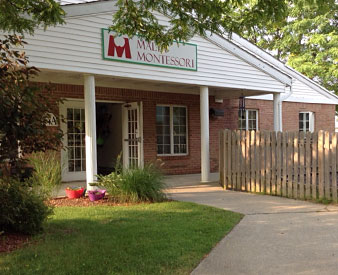Practical Life
The activities of Practical Life instill care: for oneself, for others, and for the environment. These exercises include pouring liquids, preparing food, washing dishes, setting a table, polishing, and dealing gracefully and courteously with social encounters. Through these tasks and experiences children learn to concentrate, coordinate their movements, and develop fine-motor skills. Practical Life activities are the foundation of all future academic work because they promote concentration, order, and a complete work cycle.
Sensorial
The sensorial materials are designed to enable children to identify and refine information obtained through their senses, and to order and classify sensorial impressions. By seeing, smelling, tasting, listening to, touching and further exploring the sensorial properties of these materials, children begin to classify and eventually name objects and tributes in their environment.
English Language Arts
Because the 3-6-year-old child’s mind is absorbent, this is the ideal age to assist the development of brain pathways. Montessori observed that the child of this age was in a “sensitive period” for absorbing language, both spoken and written. The Montessori early childhood classroom is rich in oral language opportunities- listening to stories or reciting poems, singing and conversing with others. Introduction of the Montessori sandpaper letters connects each spoken sound with its symbol, supporting the development of writing, and eventually, reading.
Mathematics
Young children are intrigued by numbers- knowing how much or how many provides another dimension in understanding the world. The Montessori math materials and lessons help children to develop an understanding of math concepts through the manipulation of concrete materials, building a secure foundation of math principles, skills, and problem-solving abilities.
Science, Geography, Social Studies, Art and Music
All of these subjects are incorporated into the early childhood environment. They are presented in sensorial ways with specially designed materials and real-life experiences. In geography, children learn not only about the names of counties but the life of people and their respective cultures. They develop a sense of respect for different cultures, recognizing that we all belong to the family of people. Young children are natural scientists. Watching and caring for classroom animals and plants creates an interest in science lessons and a reverence for life. Art and music give the children an opportunity for creative and joyful self-expression, as well as experiences with great music and works of art.


